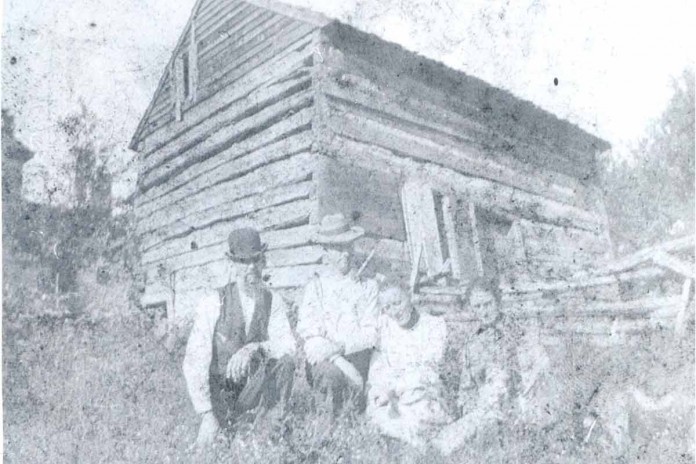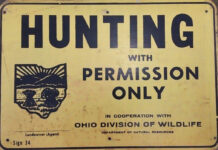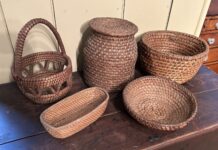
I have a bound volume of The Cultivator, a monthly agricultural paper published in Albany, New York, for the year 1841, almost 175 years ago.
Its pages contain a series of letters of advice titled, “To Western Emigrants,” and penned by a prolific letter writer named Solon Robinson. Robinson was born Oct. 21, 1803 in Connecticut and grew up on his father’s farm. He seems to have been stricken with wanderlust, as were so many young men of that era, and was in Cincinnati in 1828 where he was married.
In 1834 he loaded a couple of wagons with his belongings, and with his wife Mariah, their two small children, and two young brothers, traveled to an area some 20 miles south of Lake Michigan that later became Crown Point, Ind.
The Robinsons were among the area’s very first settlers and Solon Robinson was later the town’s first postmaster and justice of the peace, and Lake County’s first clerk, mapmaker and claims agent.
Shipping livestock
First, Robinson gives prospective settlers advice about shipping their livestock and household belongings.
“No emigrant need fear any difficulty in bringing along cattle and hogs. I have had three lots of pigs shipped from Buffalo to Chicago during the last summer in the sole care of the master of the boats, and from the appearance of the pigs on arrival, they must have been treated like cabin passengers. In fact, none but a brute could maltreat a Berkshire pig.”
He advises that all goods should be packed “in the most compact manner, in barrels and boxes, strongly hooped and nailed and plainly marked with directions,” and the transportation costs for the whole trip should be arranged and paid before leaving, as “If you have a family, you will have enough to look after without watching your freight all the journey.”
Take care of business
He points out the need to “settle all your business before you start. For I have found that ‘money to come from the East’ is ‘a very snail of a traveler’ and rarely overtakes the emigrant; and as for going back after money, you can earn two new dollars here while you can hunt up one old one there.”
Robinson goes on, “If possible, fix upon some definite spot to settle before you start–and when you arrive in a new settlement, beware of sharks. Be careful to settle in a healthy spot even if the soil be less rich.
Too much work
“One prevailing fault among new settlers is undertaking too much the first year. They wear themselves out trying to fence and cultivate forty with strength enough only for ten, then lose the whole crop because the fence wasn’t quite finished. Not only do they lose the crop, but they are probably ill as well, for while toiling at the field, the finishing of the house has been put off, and at last when a comfortable shelter from winter storms is most wanted, there is nothing of the kind. I have known of much suffering, and sometimes death, to arise from such circumstances.
“How much better to make a small beginning, to be sure and make the cabin as comfortable as possible to a family that have never been used to the like, and a log house can be made most completely comfortable. I have often seen those of a very rough exterior which showed the highest degree of neatness within.
The farm
“But there is such an anxiety among many emigrants to get a large farm that the dwelling is neglected. This is all wrong. It is much better to have a little land well tilled and a house that is, if not ‘well filled’ inside, at least have all the cracks in the outside walls well filled, if you expect to keep the wife ‘well willed.’ Many an ague fit is brought upon the new settler by the exposure to which they expose themselves in an unfinished log cabin with all the cracks open, perhaps without door or window and but half a chimney, and sometimes without floor or fireplace.
Comfortable home
“Such a way of life may be alright in the summertime and for merely that indefinite period, ’till I get over my hurry.’ But the fact is that an industrious man upon a new place, where everything is to be created by the work of his own hands before it can be called a farm, is never ‘over his hurry.’
“And I am sure that I shall have all the female part of my emigrating friends upon my side when I insist that it should be the first to do to make the dwelling house as comfortable as possible. Though a man may expose his own health, he is bound by the strongest ties to protect that of his wife and children at all times, and doubly so when he has brought them away from the thousand comforts they have been used to ‘to begin a new home in the wilderness.’
Log cabin
“Although the new settler’s log cabin is necessarily a rough, uncouth looking dwelling, it can, with a very small amount of labor, be made tight, warm, comfortable and pleasant.
How many of my readers now dwelling in their handsome mansion houses, will, as they read this, look back to the positive happy days that they enjoyed in a log cabin.
“That many of their descendants who are disposed to partake of the bounties that nature has provided for the industrious man in the Great West, will yet enjoy life in the same humble habitation is the sincere wish of their humble log cabin friend. ” “Solon Robinson.” “Lake County, Indiana, Jan. 28, 1841.”
The farmhouse
I have no idea if my great-great grandfather, Robert Moore, who was born in 1788 on the ship that brought his father and mother from County Down, Ireland, to this country, took The Cultivator in 1841 while working his farm in western Beaver County, Pennsylvania, but I know he was still living in a log cabin; the old farmhouse in which I grew up was built in 1850 by my great grandfather (also named Sam) and replaced that cabin.












